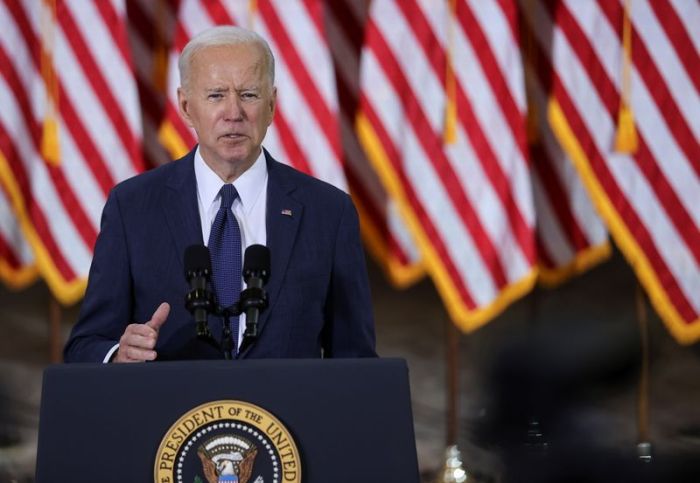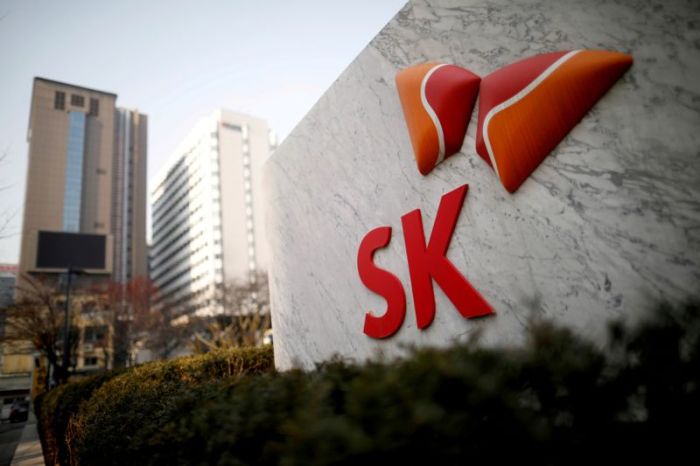WASHINGTON (Reuters) -Coca-Cola Co and Delta Air Lines on Wednesday joined a bid by U.S. companies to challenge the state of Georgia’s new voting restrictions, with both Atlanta-based companies calling the law unacceptable.
Microsoft Corp, , which in February announced a major new investment in Atlanta, Georgia’s capital, added its voice, with President Brad Smith saying provisions of the law signed last week “unfairly restrict the rights of people to vote legally, securely, and safely.”
Citi Chief Financial Officer Mark Mason said in a LinkedIn post he was “appalled by the recent voter suppression” passed in Georgia.
The Republican-backed Georgia law strengthened identification requirements for absentee ballots, shortened early voting periods for runoffs and made it a misdemeanor for members of the public to offer food and water to voters waiting in line.
Georgia Republican Governor Brian Kemp says the law is “another step to making our elections fair and secure.”
But the measure has been slammed by Democratic President Joe Biden and faces legal challenges from civil rights groups that contend it is aimed at suppressing voting among Blacks and other racial minorities.
Black voters in Georgia were instrumental in state elections that helped Biden win the White House and Democrats gain narrow control of the U.S. Senate.
Republican lawmakers in other states are also pursuing voting restrictions, which they say are aimed at curbing fraud. Research has shown that voter fraud is exceedingly rare in the United States.
Dozens of Black executives, including Merck & Co Chief Executive Officer Kenneth Frazier, had earlier in the day called on their peers in U.S. companies to push back against wider restrictions on voting rights.
They issued their appeal after Delta and Coca-Cola had faced the threat of boycotts from activists who said they needed to do more to oppose the law.
Delta’s criticism was a course reversal for the airline, which had praised the law in a statement on Friday even as it acknowledged having concerns.
Critics questioned why Delta and other companies did not speak out before Kemp signed the restrictions into law. None of the companies disclosed any concrete steps they might take in response to the law.
‘COMPANIES NEED TO TAKE A STAND’
The campaign against the new Georgia law, led by Merck’s Frazier and former American Express Co CEO Kenneth Chenault, urged companies to look past the appearance of partisanship and publicly stand against it and voting restrictions being pursued in other states.
“We’re calling on corporate America to publicly oppose any discriminatory legislation and all measures designed to limit Americans’ ability to vote,” Chenault told Reuters.
“American companies need to take a stand.”
A letter supporting the campaign by Frazier and Chenault was signed by 72 Black executives including former Xerox <XRX.N> CEO Ursula Burns, former Citigroup Inc Chairman Richard Parsons and Uber Technologies Inc Chief Legal Officer Tony West.
‘A STEP BACKWARDS’
On Wednesday, Coca-Cola CEO James Quincey called the law “unacceptable – it is a step backwards.” He told CNBC the law was “wrong and it needs to be remedied.”
Delta CEO Ed Bastian said in a company memo on Wednesday: “The entire rationale for this bill was based on a lie: that there was widespread voter fraud in Georgia in the 2020 elections.”
Bastian wrote: “The bill includes provisions that will make it harder for many underrepresented voters, particularly Black voters, to exercise their constitutional right to elect their representatives.”
“The final bill is unacceptable and does not match Delta’s values,” the memo said.
His memo, on the final day of the state legislative session, drew condemnation from Kemp.
The governor said the memo “stands in stark contrast to our conversations with the company, ignores the content of the new law, and unfortunately continues to spread the same false attacks being repeated by partisan activists.”
Frazier, who is stepping down as head of Merck in June, has been outspoken on social and political issues before.
He was the first CEO to leave Republican former President Donald Trump’s American Manufacturing Council, saying he was taking a stand against intolerance and extremism, and called out racial inequities across U.S. society after the death of George Floyd under the knee of a Minneapolis police officer.
Late on Wednesday, Ford CEO Jim Farley said in a statement that “equitable access to voting rights for all people – including our colleagues and dealers in all 50 states – is sacred.”
While not addressing the Georgia law, Farley said the U.S. automaker wanted lawmakers “to assure everyone who’s entitled to vote is able to exercise that freedom.”
(Reporting by David Shepardson in Washington and Uday Sampath in Bengaluru; Additional reporting by Ben Klayman in Detroit; Editing by Bernard Orr, Howard Goller and Peter Cooney)



























